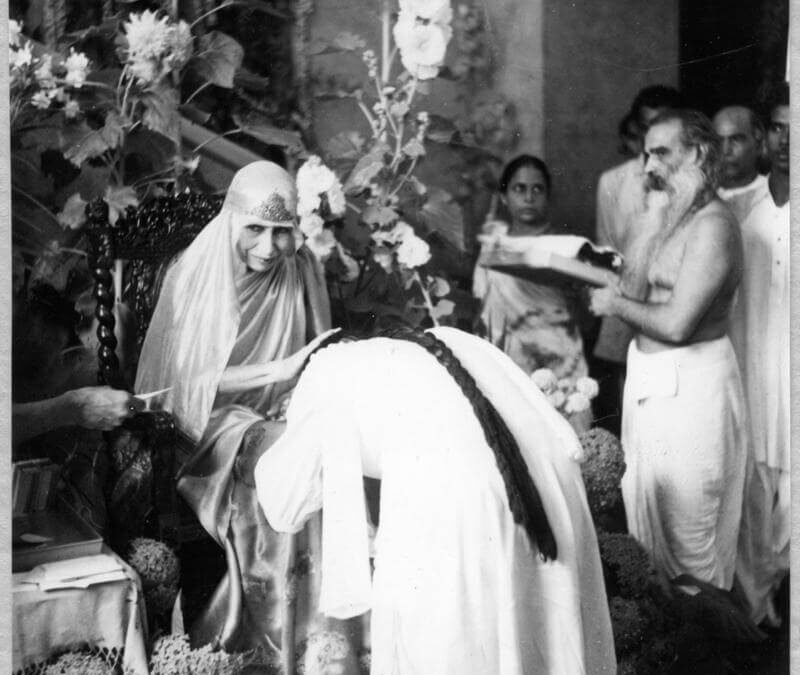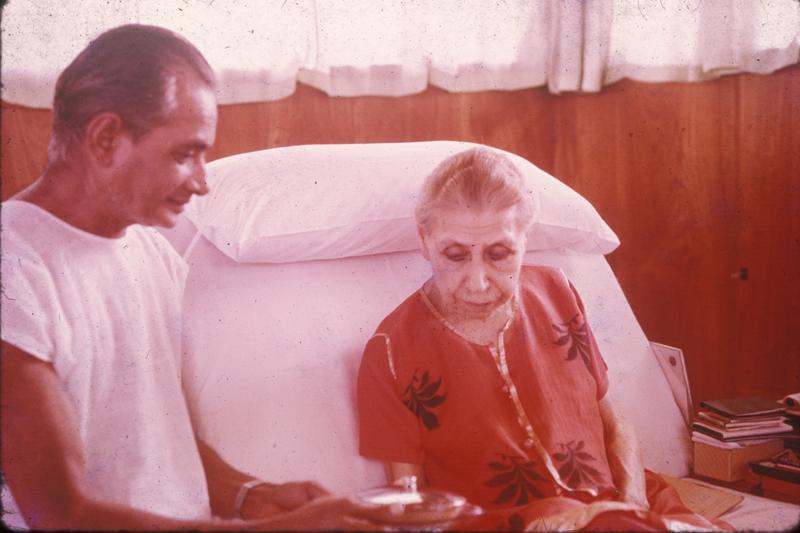Self-perception and the Divine perception of oneself

Perfect Sincerity
03/04/2024Remember me – The Mother
03/06/2024There is a tremendous difference between what you know about yourself and what I know about you. What I know about you is obviously what you ought to be. So, outwardly one sees clearly what people are like, but that is just an outer phenomenon, you know. Between the two there is the vital and mental domain which is the most important from the human point of view, and it is there that in everyone the consciousness of what he ought to be should be reflected, so that he may realise it. But there is a vast distance between what each one knows about himself, what is actively conscious in him and what he is in the truth of his being. It is more difficult for me; this intermediate domain is a very cloudy one, for me it is a domain of falsehood, what I call falsehood. There are two words in English, “falsehood” and “lie”; well, it is the see of falsehood. It is not a lie in the see that one tells a lie, but it is a domain of what is not true, what is not at all the experience of the truth of a being, and yet it is of this that he is almost solely conscious. Only a very few have the inner perception of what they want to be, what they want to do, of what the truth of their being is. There are not many such. Or else it comes and then gets veiled; suddenly one has a flash and then it gets clouded over. And so the questions I put are always in order to know the state of this surface consciousness, which for me is something quite unreal, something that is not true.
There is such a contradiction between the brutal fact of your daily way of life and the picture I have before myself of what each one of you ought to be, a picture I keep there with all the power of my consciousness so that you may realise it—and that is yourself, that, yes, is yourself! It is not this ignorant being, stupid and insincere—sometimes dishonest—who is the… whom you call yourself.
Ref: Questions and Answers 1954




